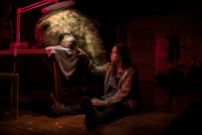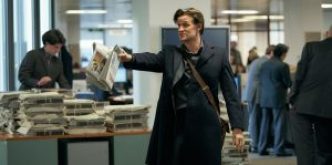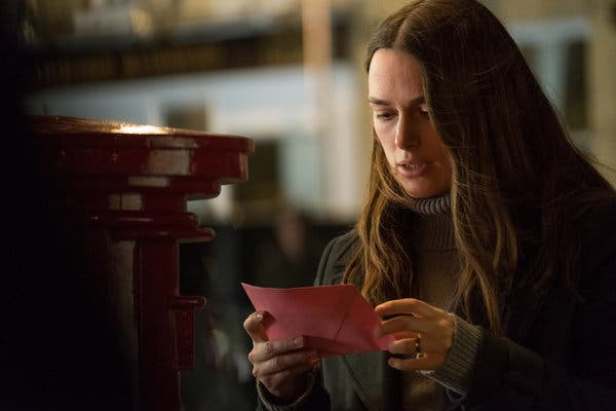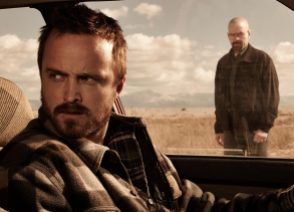30/10/19
In a remote mountain hideout, somewhere in Colombia, eight teenage guerrillas are killing time. They belong to some unspecified rebel organisation, and their main purpose is to watch over an American captive, referred to simply as Doctora (Julianne Nicholson). The youths all have the anonmity of nicknames and they pass the long hours playing bizarre sports, exercising, arguing, having sex and recklessly discharging semi-automatic weapons, in some cases with catastrophic results.
From time to time, The Messenger (Wilson Salazar) rides over the hill and puts these feral youngsters through the wringer, instructing them to work their bodies to the limits of their endurance, encouraging them to inform on each other in order to further exert his malign influence over them. We learn nothing about the organisation they work for – or even why Doctora is being held hostage in the first place – but strangely, this all serves to make writer/director Alejandro Landes’ story ever more mesmerising as it unfolds.
There’s so much to relish here: the stunning location cinematography, the raw performances from the young actors (particularly from Sofia Buenaventura as the conflicted ‘Rambo’) and the oppressive feel of the isolation the eight-strong team are forced to endure. Watching this is an ordeal, but in the best sense of the word.
In the second half, after a violent skirmish with Doctora’s would-be rescuers, the team take their captive into deep jungle, where she attempts to engineer an escape – and the film veers into action/adventure territory. There are breathless chases and dangerous plunges down wild river rapids, all of which keep me perched on the edge of my seat right up to the final shattering frame.
There are evident references to other stories here, most noteably to William Golding’s Lord of the Flies – indeed, one scene is a direct homage to it. There are other images that wouldn’t look out of place in Apocalypse Now or Aguirre: Wrath of God. But such comparisons can sometimes serve to diminish a film’s worth, and Monos is very much its own creature, a brilliant and intelligent meditation on the nature of indoctrination.
If you can see this on the big screen, so much the better. It’s a stunner.
5 stars
Philip Caveney





























